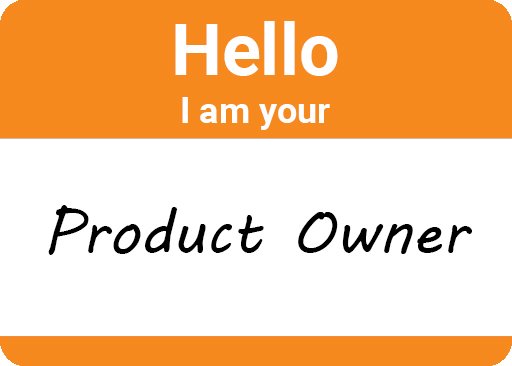
The role and responsibilities of the Product Owner. What makes a good Product Owner?
Our previous post on What Scrum Masters should do has become so successful that we cannot ignore the role of Product Owner (PO). Often this role is filled by people who were previously project managers, and in such cases, with a new team, there are many questions about what to do and how to fill this new role. Such a change requires a different mindset, a rethinking of previous routines. This post is intended to help POs who are new to this role.
Who is the Product Owner?
Who exactly is the PO and what is his/her role in product development?
The Product Owner is a member of the team, although the whole team is responsible for the creation and production of the product, the Product Owner is the person who must ensure that the product produced is of the highest possible value.
WHAT IS A PRODUCT OWNER'S TASK?
So what can we as POs do if we find ourselves in this role? What exactly is the Product Owner's job? We have summarised it in 10+1 points.

Of course, the tasks may vary from one organisation to another, as no two operations are the same, but implementing the following tasks will help us in all cases:
1. Defining the business need and purpose
Find out, or better still, help to define the top-level business need. Identify why you want the project, what benefits the organisation is hoping to achieve, what the expectations are, perhaps KPIs. It is good if these are measurable so that once the final deliverable is completed, it can be assessed whether it has achieved the desired impact.
2. Clarify the framework
It's good to have a clear framework and clear expectations. How big is the team, what is the scope of the project, what are our responsibilities, and what do the clients expect from us?
3. Get to know the team, agree with the Scrum Master (SM) and the team on how to collaborate and what is expected
As a good Product Owner lives with the team, it is of paramount importance that the team is formed.
- Be clear about what you expect from each other, whether it's the SM or the team members.
- Let's build our own WoW, our way of working, our processes.
- Clarify who will be responsible for what, what is considered "done" in terms of deliverables, what will be the main form of communication, who will participate in what ceremonies.
Clarifying the above not only makes work more efficient, but also helps team performance and increases commitment.
4. Map the stakeholders and interests
Think about who the stakeholders are in the project, and in more complex cases, use a power-interest matrix to illustrate this. Focus on who has what interests in the project, try to map them, this can be very important later in the project. We have seen many projects where inadequate stakeholder management or hidden interests have hindered the successful implementation of the project.
5. Determine the value
One of the foundations of agile trends is value orientation, i.e. only making something that is of value to its users. Our programmes we are often surprised by the many ways in which the term "value" appears and can be defined. When defining value, let's use personas, try to define what kind of people will use the results, what kind of characteristics they have, this can help the process.
6. Prepare the product strategy and roadmap
It may be beneficial to involve the team and the customers in this process, defining the "stages" in the life of the product, and the stages and relays that should be used to develop it. Define the objectives, for this you can even use a now-next-later roadmap. Don't make the mistake of wanting to "read" the future in details, the later elements you talk about, the more uncertainty there is!
7. Make a storymap
Creating such a map gives the team the opportunity to brainstorm, define the complexity of tasks and their urgency. Mapping functionality from a user perspective also helps to stay value-focused and helps the team understand the overall project ahead.
8. Participate in setting sprint objectives and planning the sprint
As a PO, our task is to provide the team with user stories, which are prioritised and recorded in the backlog. It is important that the team understands these accurately, it is a good direction if they are developed according to the INVEST rule.
9. Constantly maintain the backlog and roadmap
One of the principles of agile trends is that change can and will happen in the project. If the requirements change, the backlog and roadmap should be updated and maintained.
10. Use the experience
Whether it's a release or a retrospective, ask for (and give) feedback, incorporate it into your work, use it, and you can achieve continuous improvement.
+1. Live with the team
Let go of old routines, focus on direct communication, be available to the team. In order to be effective, it should not take days to answer questions from the team side, try to answer them as quickly as possible.
What skills should a Product Owner have?
Strategic vision and business skills
It is very important that the Product Owner understands how the product fits with the organisation's current strategy and product portfolio, and if necessary, fine-tune it.
You need to see how the product will create value for those funding its development and how it will pay for itself. You also need to be able to assess the real and potential needs of other stakeholders. This requires having market research, trend analysis, stakeholder and competitor analysis at your disposal and being able to interpret them. If this is not done, the project is much more risky from a business point of view, as it only meets hypothetical needs.
A Product Owner must therefore have the following skills:
- Understand the business objectives, strategy
- You must be able to create a vision for the product
- You should be able to validate your vision by analysing the market environment, competitors and trends
- You must be familiar with the decision-making processes within the company
- Be able to properly analyse and prioritise needs
- You must have the appropriate communication and negotiation skills to communicate your objectives
What personal qualities should a Product Owner have?
Although professional knowledge is also very important, it is fortunate if the Product Owner has the following personal qualities:
- Responsible, reliable personality
- Charismatic action for stakeholder alignment and proper product representation
- Assertive communication skills - to manage potential conflicts
- Analytical approach, strategic vision: to maximise value
- Proactivity
- Systematic approach
CONTACT
If you need help, our agile coaches, trainers and consultants with an active development background as certified Scrum Masters and Product Owners can provide practical solutions and support.
Looking for a practical, simulation-based Product Owner program? Contact us!
info@promanconsulting.hu

 Designabc
Designabc